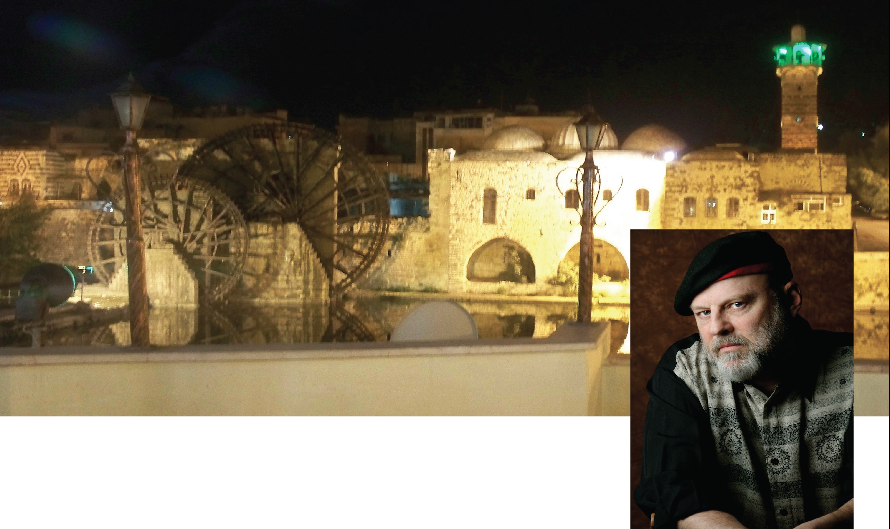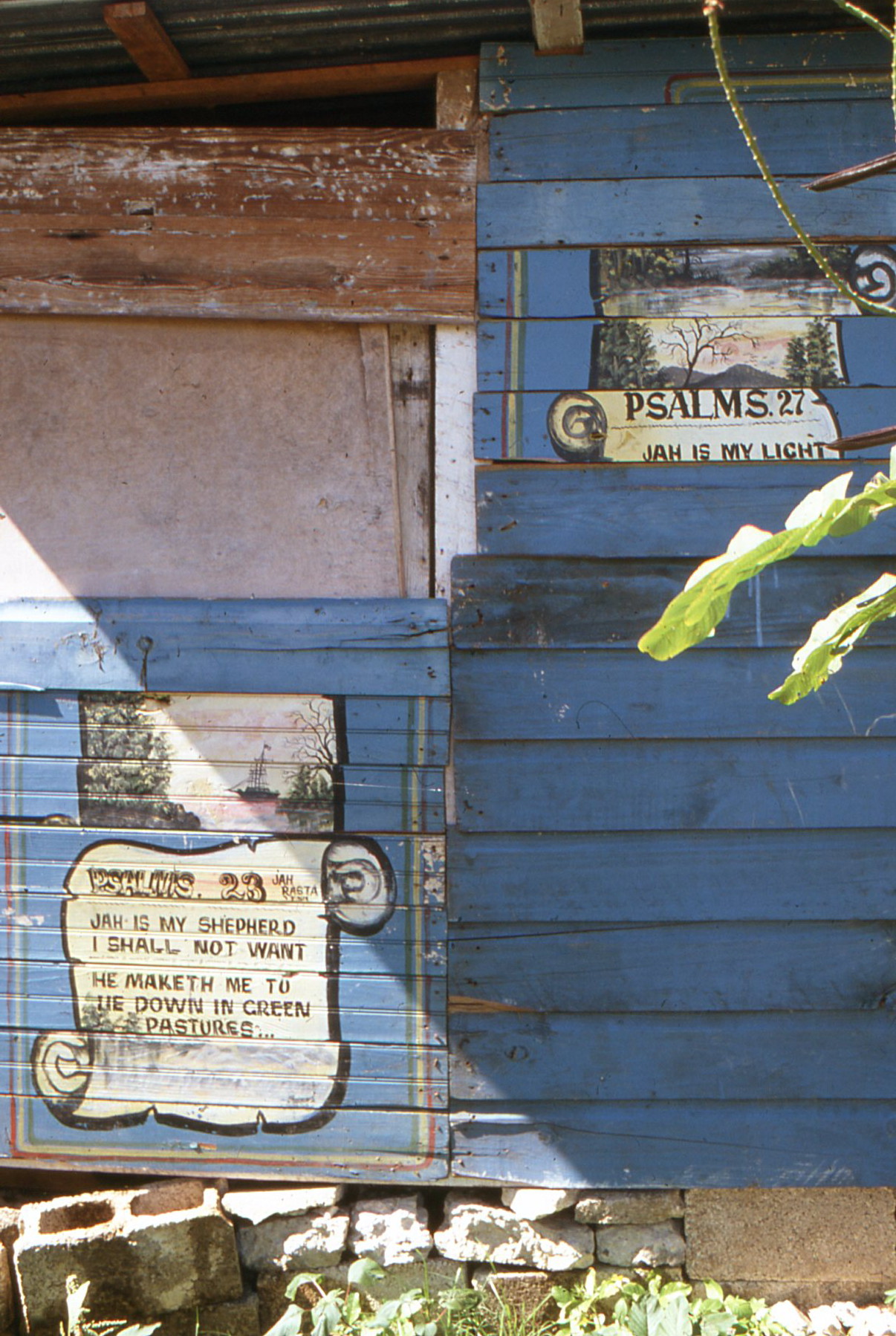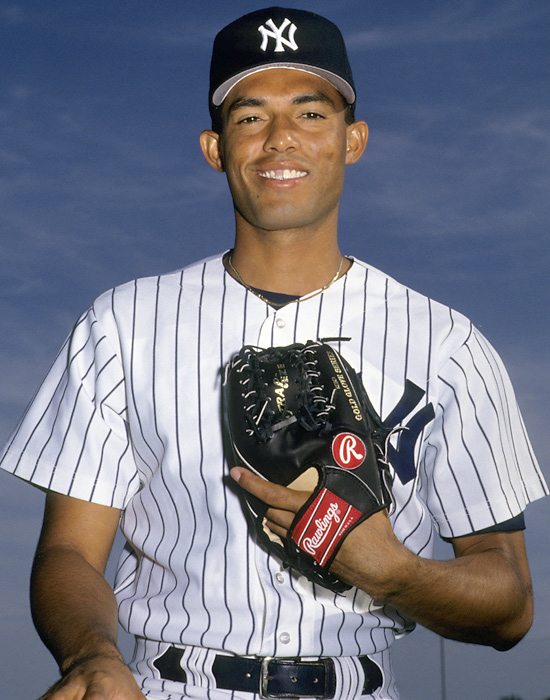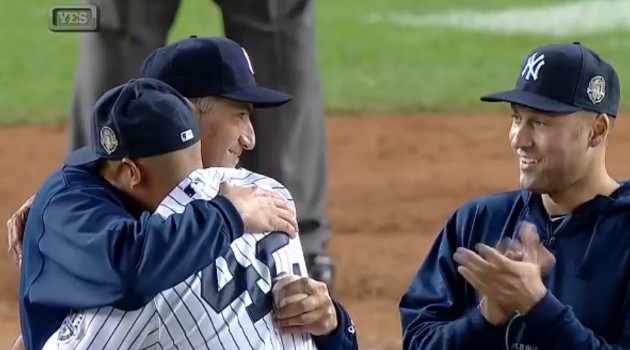23 Oct 2013
![This "Lion of Juda" [sic] cart patrols the market in Port Antonio, Jamaica. "Jah Live," yes indeed.](http://danielgabriel.us/wp-content/uploads/2013/10/img224.jpg)
This “Lion of Juda” [sic] higgler’s cart patrols the market in Port Antonio, Jamaica. “Jah Live,” yes, indeed.
A shapeless mask, and a book of rules”
— The Heptones, “Book of Rules”
When the Heptones slice through the glittery facade of those “clown-addled capers in sawdust rings” that so draw our attention, what they find are the core elements with which each human is equipped: the tools, the mask . . . and that book of rules.
Forget the surface exoticism of Jamaica’s Rastafarians, or the frenzied allure of the island’s traveling sound system Dance Hall slackness. The Heptones are pointing straight at the Bible: the Book of Rules. They may view its pronouncements from a different vantage point than you or me, but there is no question of its power or centrality to the works of Jah. And the power they’re calling forth is the power of the Word.
Check it: “Wordsound is Power,” say the Rastas. “In the beginning was the Word,” starts the Gospel of John, “and the Word was with God. And the Word was God.” Sam Brown, the Rasta poet, says, “To me poetry is the inner voice of God speaking.”

Along Jamaica’s North Coast, near Cooper’s Pen, this stall holder proclaims “I am save. It’s not I live, it’s Christ by me,” as well as the ubiquitous “Jah is love.”
At the heart of language—and by extension, all communication—is something very powerful. It is the making of worlds; the calling forth of deity; the shaping of the experience of life itself. Words are our access to each other.
Likewise, poverty of language means poverty of imagination and, ultimately, poverty of spirit. Jorge Luis Borges (the Argentine poet, essayist and fabulist), in “The Library of Babel,” describes a world in which there is nothing new to write, in which all that needs to be known has already been catalogued. He says, “the certitude that everything has been written negates us or turns us into phantoms.” It is our knowledge that not everything has been written that keeps us from that fate.
And so the Rastas rework the language: “Oppressor” becomes “downpresser.” (More apt, right?) “System” becomes “shitstem.” The late Peter Tosh called Island Records label head Chris Blackwell “Chris Whitewell,” implying his lack of bona fides. Language is both malleable and meaningful.
In my novel Twice a False Messiah I attempted to transform language in much the same way. Section III (“In the Tombs of the Nobles”) begins with a straight quote from John 1:1-3: “In the beginning was the Word. And the Word was with God. And the Word was God. That’s what they told us the night in Vienna . . .” The core search throughout the book is for a specific word—the sounding of the True Name of God. Can it be found? And if so, what happens to its power when spoken aloud?
Make no mistake. The power of the Word is not limited to the page, or to the volume of the human voice. Hebrews 4:12 says it well: “For the Word of God is alive and active. It cuts more keenly than any two-edged sword, piercing as far as the place where life and spirit, joints and marrow, divide. It sifts the purposes and thoughts of the heart.”
In concert with my Rasta bredren I can say: Jah live. Jah love protect us.




